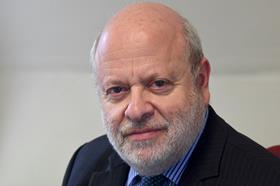There is a proliferation of think-pieces in the press at the moment about the breakdown of a commonly shared reality. People live in their respective bubbles, and use conspiracy theories and false allegations to shore up their beliefs against reality breaking in. Artificial intelligence has arrived with perfect timing, to hinder us further in telling truth from falsehood.

This concerns lawyers when lawyers support unsupportable legal cases or threaten others with litigation based on a false theory or false allegation.
The two hurricanes which hit the US recently in a short space of time highlight the problem in the US. There were claims that the hurricanes were ‘weather weapons’ unleashed on the East Coast by the US government; there were photos of condensation trails in the sky alleging that the government was spraying Florida ahead of the hurricane in order to ensure maximum rainfall, as was claimed to have happened with the previous hurricane; there were claims that the US disaster agency (FEMA) was neglecting Trump-voting victims in post-hurricane efforts.
Real-world consequences followed: there were credible threats and incitement to violence directed at the federal government, and calls to send militias to face down FEMA.
Lawyers themselves stepped over the line in another US example: the January 6 insurrection after president Trump lost the 2020 election. Rudy Giuliani, who led president Trump’s post-election efforts, was recently disbarred in Washington DC, based on New York disbarring him in July. Jenna Ellis has been suspended from practising law for three years as a result of a guilty plea. Others are still in dispute with their bars over disciplinary measures arising out of representing Donald Trump.
The New York Times has now published an opinion piece ahead of the forthcoming election headed ‘Lawyers Should Not Assist Trump in a Potential Power Grab’, arguing that ‘Lawyers cannot, consistent with their ethical obligations, participate in devising litigation that is retrofitted to support the position Mr. Trump seems to hold — that the only “real” Americans are those who cast their ballots for him and that those who vote against him are by definition engaging in fraud.’
We have the beginnings of bubble-living in this country, with sides drawn up, refusing to believe hard evidence which might threaten their own beliefs: for instance, regarding Covid, climate change, immigration and the UK’s summer riots.
There were a couple of cases over the last few months before the Solicitors Disciplinary Tribunal in relation to Covid, not based on the solicitors’ beliefs but on action they took in relation to their own or their client’s beliefs.
In one, a solicitor sent letters containing implied legal threats to hundreds of schools and others, telling them they could be at risk of criminal/civil liability if they required face masks to be worn in schools, carried out routine lateral flow tests or facilitated Covid vaccinations for children aged 12-17 (the solicitor faced a £2,500 fine and £30,000 costs).
In the other, a solicitor was found to have improperly threatened legal proceedings against a GP practice and the Medicines and Healthcare Products Regulatory Agency during the pandemic, when there was no proper basis for the claims (£15,000 fine and £66,500 costs).
If solicitors, as with the above examples, are swept away by theories into taking unethical steps, either directly or on behalf of clients, our regulatory authorities will doubtless take action. But, if the kind of violent threats materialise that we saw against US government agencies during the hurricanes – and indeed against the police trying to quell the riots in the UK over the summer – will our regulators and other professional bodies be safe in the future from threats of violence?
We should not be helpless, and just drift towards this eventuality. We need to recognise the future possibility now, and take action. Here are some suggestions:
- What about training lawyers on how to distinguish between a false and a true claim, between a real image and an AI-generated one, and indeed on how social media’s algorithms and payment systems work?
- And should regulators and lawyers choose their communication platforms with more care? Specifically, for instance, should the Solicitors Regulation Authority and the Law Society remain on X/Twitter, when it is at the same time a purveyor of some of the wildest false claims, which appear next to its messages and therefore may make it seem that a message from our professional bodies is of the same value and challengeable probity as a claim that the US government is directing bad weather towards Republican states?
There are doubtless other possibilities. The issue should be raised for debate, before our social fragmentation worsens, and our profession and our professional bodies are threatened by the malign use of AI and by bubble-livers whose ‘truth’ feels threatened by legal and disciplinary actions taken against lawyers who breach our ethical rules.
Jonathan Goldsmith is Law Society Council member for EU & International, chair of the Law Society’s Policy & Regulatory Affairs Committee and a member of its board. All views expressed are personal and are not made in his capacity as a Law Society Council member, nor on behalf of the Law Society
This article is now closed for comment.































9 Readers' comments